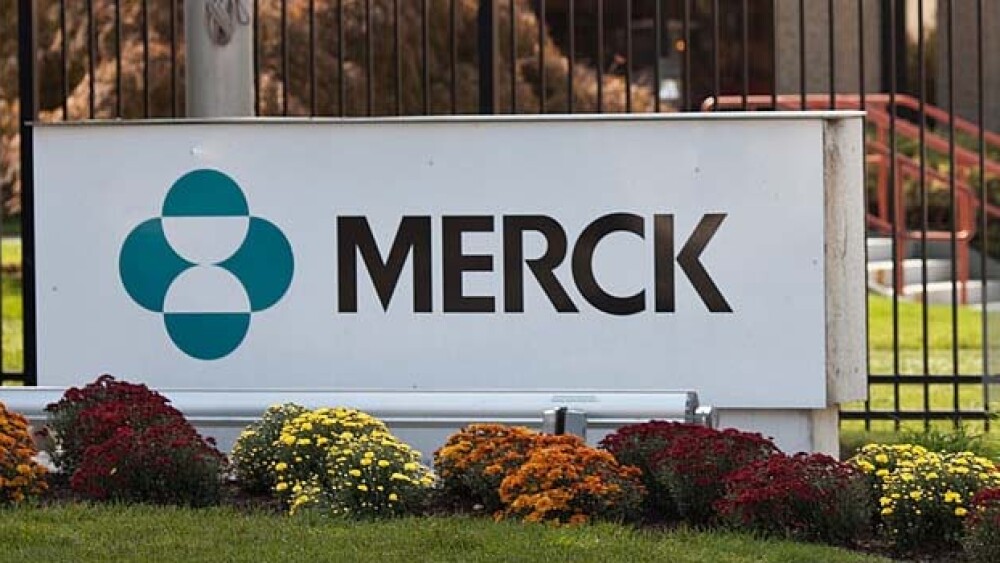The pharma giant announced plans to expand its immuno-oncology program with three new Phase III trials following promising data from a combination of Keytruda and Lynparza and other agents.
Merck is increasing its focus on developing therapies for advanced prostate cancer with its powerful checkpoint inhibitor Keytruda. The pharma giant announced plans to expand its immuno-oncology program with three new Phase III trials following promising data from a combination of Keytruda and Lynparza and other agents.
During a Thursday presentation during the 2019 Genitourinary Cancers Symposium (ASCO GU) in San Francisco, Merck said interim data from the Phase Ib/II KEYNOTE-365 trial using its vaunted anti-Pd-1 therapy Keytruda in combination with various agents, is showing promise in treating patients with metastatic castration-resistant prostate cancer (mCRPC). Merck said the early findings show anti-tumor activity across three cohorts of the study. The three study cohorts paired Keytruda with Lynparza, docetaxel and prednisone and enzalutamide. Based on the findings, Merck said it plans to initiate three Phase III trials with these combinations. Prostate cancer is the second most common cancer in men, with an estimated 1.3 million new cases diagnosed worldwide in 2018.
Keytruda has become a lynchpin in Merck’s oncology pipeline. In November, Keytruda snagged regulatory approval for the second-line treatment of patients with hepatocellular carcinoma (HCC), its 14th indication. Roy Barnes, chief medical officer for Merck Research Laboratories, said this morning that Keytruda lies at the core of the company’s research program. He said Merck has a commitment to investigate Keytruda as a standalone or in combination for cancers where additional therapies are needed. He said the checkpoint inhibitor is continuing to show its prowess in the three prostate cancer drugs, which is why the company plans to initiate the three Phase III trials to further evaluate Keytruda in these combination regimens. The company’s confidence and commitment to Keytruda have given Merck the largest clinical program with an anti-PD-1 therapy in prostate cancer.
At ASCO GU, Merck presented interim data from the three cohorts of the KEYNOTE-365 Phase 1b/2 study. Cohort A, which paired Keytruda with Lynparza, showed a disease control rate of 29 percent in the total cohort population. The median time to PSA progression was 15.3 and 18.1 weeks for patients with measurable and non-measurable disease, respectively. In an analysis of rPFS and OS endpoints, the median rPFS was 4.7 months and the six-month rPFS rate was 48 percent. The median OS was 13.5 months at the time of analysis and the six-month OS rate was 73 percent.
Patients in Cohort B received Keytruda along with docetaxel and prednisone. The efficacy analysis from Cohort B showed a PSA response rate of 31 percent in the total cohort population, 22 percent among patients with measurable disease and 39 percent among patients with non-measurable disease. The median time to PSA progression was 24.1 and 30.4 weeks for patients with measurable and non-measurable disease, respectively.
Patients in Cohort C received Keytruda in combination with enzalutamide. The efficacy analysis from Cohort C showed a PSA response rate of 26 percent in the total population, 40 percent among patients with measurable disease and 18 percent among patients with non-measurable disease. The median time to PSA progression was 18.4 and 12.4 weeks for patients with measurable and non-measurable disease, respectively. The median duration of response was 8.3 months – and at the time of analysis, 75 percent of patients had responses lasting for six months or longer, Merck said. Among patients with measurable disease, the ORR was 20 percent, with a complete response of 8 percent and partial response of 12 percent.





